Deutsche Bank’s Ramesh Gopal doesn’t let volatility get to him, even when managing a risk region that includes Russia, Ukraine and Israel. Here he discusses his ‘keep calm and carry on’ mentality, and why Dubai is the perfect centre point for global business.
“I have continuously been on a risk journey since 2008,” says Ramesh Gopal, chief risk off icer for the UAE and Saudi Arabia, and head of credit for the CEEMEA (Central & Eastern Europe, Middle East, and Africa) region at Deutsche Bank.
“I started my career on the business side before moving into risk. When you are part of a business team, you have your sales team who hit the field and the middle office preparing proposals and doing analysis. I had exposure to both and when an opportunity presented itself to shift to the risk management domain with this experience, I accepted it wholeheartedly.”
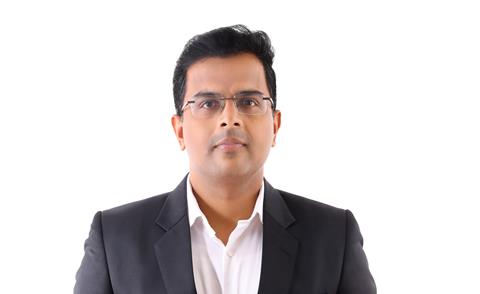
The decision has led Gopal to assume several risk roles across the Middle East before landing at Deutsche Bank, where he has now been for nearly a decade.
Based in Dubai, Gopal has been in the UAE’s financial and trading hub for nearly 20 years. As a central location for the world’s economy, Dubai has provided Gopal with myriad challenges and opportunities.
A REGIONAL PROFILE
Gopal completed an MBA before embarking on his professional career, later obtaining his Ph.D. His first role was in Europe with ING Nederland in 2002.
“While I was at ING, I received an offer from a Middle Eastern bank [Union National Bank, now Abu Dhabi Commercial Bank] where they were looking for business people who understand risk. That’s where my shift into risk in the Middle East first happened.”
“This role was focused on credit risk. I was able to replicate much of what I learned at ING, handling large corporates, as well as the likes of IPO financing, to high-net-worth individuals.”
From there, in 2008, Gopal moved to Noor Islamic Bank. “I felt I should have exposure to Islamic banking if I wanted to call myself a holistic banking professional.”
Gopal was then a vice president at Barclays Bank, which included two short stints in London. This role, based mostly in Dubai, gave Gopal the “regional profile” he was looking for as it involved working across the Gulf Cooperation Council, comprising Bahrain, Kuwait, Oman, Qatar, Saudi Arabia and the UAE.
A RELAY RACE OF VOLATILITY
In 2014, Gopal made the shift to his current and longest-running employer, financial behemoth Deutsche Bank. Based in Dubai, Gopal has experienced a gradual widening of his regional responsibilities, starting as vice president of credit risk risk handling the Gulf Cooperation Council (GCC).
“The coverage for my profile has been steadily increasing,” he says. “From GCC, I then took on the role of head credit risk for Middle East, North Africa and Turkey (MENAT), and now CEEMEA. While MENAT consists of 17 countries, CEEMEA includes 51. So my last 10 years at Deutsche have seen this gradual expansion of regions, all while living through a very turbulent market, especially over the past five to six years.”
“The crisis has been like a relay race, with one country handing over the baton to the other over the past few years.
Recently, this volatility has a lot to do with the CEEMEA region incorporating three nations in particular: Russia, Ukraine and Israel.
“This has arguably been one of the most turbulent regions in terms of geopolitics and its impact on risk management. The crisis has been like a relay race, with one country handing over the baton to the other over the past few years. You are fire-fighting all the time and managing the risk profile of the bank to ensure there are no major losses in this entire region,” he says.
With sanctions being imposed from all quarters on Russia and the war impacting the Ukrainian economy, it was not an easy task to manage the risk portfolio in these countries and facilitate Deutsche Bank to emerge stronger from the crisis. The current Middle East conflict poses several challenges from first-order and second-order risk perspective, which has kept Gopal and his team on the toes.
HIS TWO-MONTH METHOD
So how has Gopal managed the challenge of assuming an expanding map of risk regions? “When I’m given a new region, the first month is just me by myself,” he says. “This means that I take that time to completely dissect the portfolio to the maximum granular level possible, listing out all of my questions.
“The next 30 days are all about multiple meetings, addressing the problems I can see and getting answers to all of those questions. I might have 60 questions and need 10 to 15 meetings to address them all.”
Gopal says this process — one month dissecting your new regional profile and another full month to get it clarified — is a proven approach to getting on top of any new portfolio.
“When I’m given a new region, the first month is just me by myself”
“This way, you are handson with your portfolio. You’ve gone into the granular details. So, your portfolio is at your fingertips. I’ve followed this approach over the last 10 years.
“Dubai is strategically located for the entire CEEMEA region. When I come into work, I can interact with colleagues in Singapore who have already started their day. I can interact with the team in India, which does the global rating analysis for all my clients. Within three hours, our London office opens, and later in the day, I’ll still be working when our New York office opens.”
Gopal says that this accessibility means that nowhere in the world gets their information as fast as Dubai. “When companies decentralise their operations by having operations in Dubai, it enables clients to be easily reached.”
DO NOT PANIC
When it comes to Gopal’s specific approach to risk, he says it is about striking the right balance. “Deutsche Bank is growing in this region, so we are dealing with many new clients. As a risk manager, I need to perform a balancing act because when there is growth, there is risk, too,” says Gopal.
“Too many people ignore that combination of risk and growth due to the optimism they feel at the time. This region has lots of risk elements that are new and have only just emerged. So, my job is not just about handling growth or handling risk, it is about how I balance the ‘risk of growth’ and the ‘growth of risk’.”
But how does Gopal summarise his personal approach in the face of these risks? “Do not panic,” he says. “This is the major lesson. Risk factors will keep hitting you. Panicking during a risk situation makes you a poor risk handler”.
“Anything and everything turns into credit risk if we don’t handle it properly.”
“I have become a measured risk manager. Whenever markets fall, a war impacts matters, there’s a credit event, or a major bankruptcy, it has become part of my DNA to sit calmly and see what exactly needs to be done.”
Gopal caveats this point by stating that while risk managers should remain calm, they should also be proactive. “I tell the risk managers in my team that our job is to keep the bank safe. You can be the biggest brand in banking, but still not be safe.
”Big banks can collapse,” he says. “On the other hand, you can have banks that are very safe but not successful. My philosophy is very simple: manage your institution and your risk profile in a way that makes you both ‘successfully safe’ and ‘safely successful.’”
Looking towards the future, Gopal lists his top three risk areas of concern in the banking sector. “Top of the list is cybersecurity. Number two is geopolitical risk, which is especially an issue in the region I look after. Thirdly, and this is an issue that too many people have put on the back burner, is credit risk. Anything and everything turns into credit risk if we don’t handle it properly.”





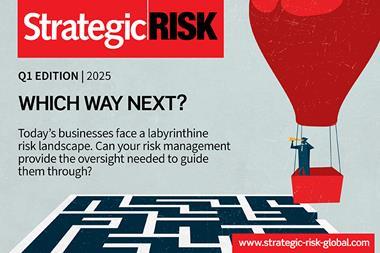
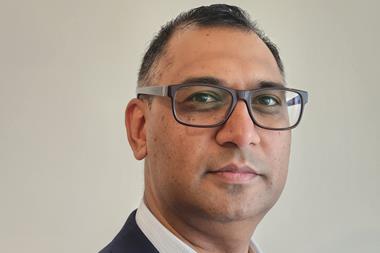
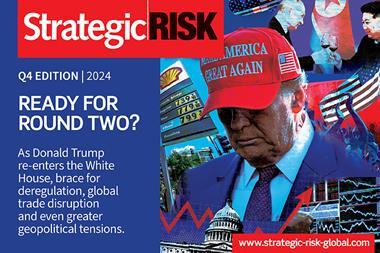
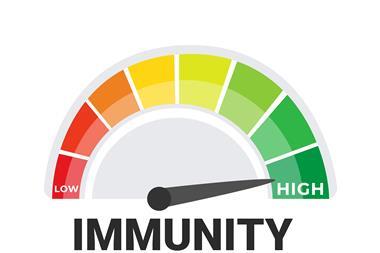
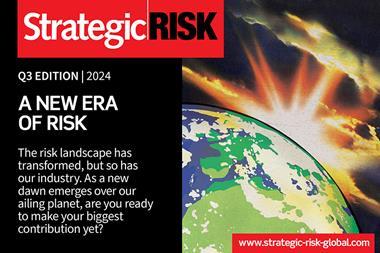
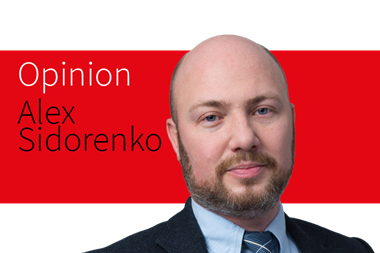



No comments yet